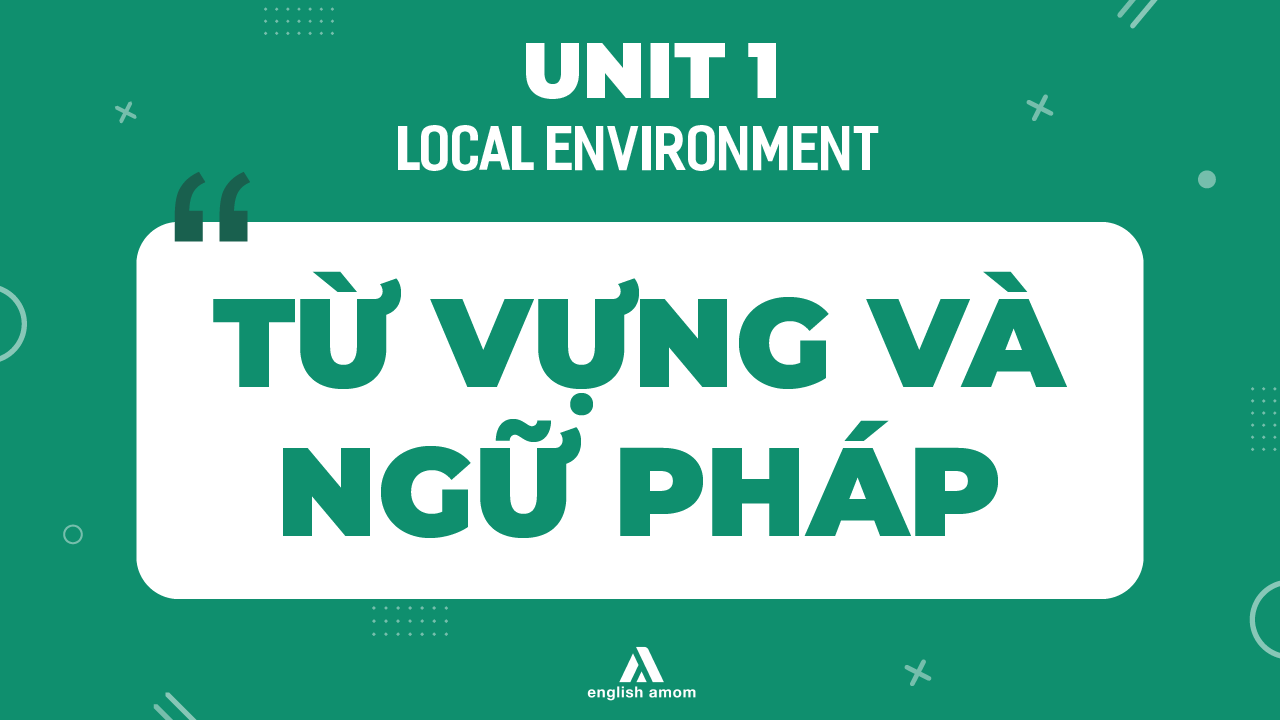
► Kênh hỏi đáp và giải thích thắc mắc kiến thức MIỄN PHÍ → truy cập LINK NHÓM: ENGLISH AMOM
► Kênh YOUTUBE hệ thống toàn bộ bài giảng CLIPS: truy cập LINK: ENGLISH AMOM CHANNEL
► Kênh TIKTOK: ENGLISH AMOM
3) Complete the passage by filling each blank with the correct form of the word in brackets.
Some people ask me if I like living in my hometown. The answer is certainly ‘yes’. The simple reason is that it has lots of (1. interest) ............................ places. If you want to widen your knowledge of the past, you can go to the museum. It's a (2. history)............................ building, with a big collection of valuable artefacts. There is also a craft village in my hometown. There, the (3. village)............................ make drums. Their drums are not only famous in the (4. local)............................ but also nationwide. You can visit the old workshop, where drums are still made in the traditional way. Some of them are huge! Another (5.attract) ............................ in my hometown is the local library. It's an (6. educate) ............................ place where anyone can borrow books and take them home to read. Besides, it also has a (7. read) ............................ club. I'm one of its members, and we gather once a week to discuss what we've read together. My hometown is also a (8. culture)............................ centre, with many traditional festivals and activities. I love it very much.
ĐÁP ÁN:
| 1. interesting | 2. historical | 3. villagers | 4. locality | 5. attraction | 6. educational | 7. reading | 8. cultural |
5) Make a complex sentence from each pair of sentences. Use the subordinator provided in brackets and make any necessary changes.
1. There are modern knitting machines. The artisans in my village like using traditional looms (although)
2. Many children like to go to Bat Trang Ceramic village. They can make their own pottery there. (as)
3. We have to follow more than ten stages. We can make a simple conical hat. (so that)
4. Sinh paintings are special. They are burned after worship. (since)
5. We'll have to phone you first. Then we'll organise the trip. (before)
6. We were visiting an old building. They were going to a traditional market. (while)
ĐÁP ÁN:
1. Although there are modern knitting machines, the artisans in my village like using traditional looms.
2. Many children like to go to Bat Trang Ceramic village as they can make their own pottery there.
3. We have to follow more than ten stages so that we can make their own pottery there.
4. Sinh painting are special since they are burned after worship.
5. We'll have to phone you first before we organise the trip.
6. We were visiting an old building while they were going to a traditional market.
6) Complete each sentence using a verb from A in the correct form and a particle from B. You can use any particle more than once.
|
A |
B |
|
find turn bring close get deal |
out down with up |
1. What time does your mother usually .................................. in the morning?
2. We must .................................. the train times so that we can take the earliest train to Hai Phong.
3. My favourite writer has .................................. another best-seller.
4. We're .................................. lots of complaints from customers about the quality of these shirts.
5. Why did you .................................. your workshop? I thought that it was running quite well.
6. I had to .................................. their invitation to take part in the trip because my father didn't allow me to go.
ĐÁP ÁN:
| 1. get up | 2. find out | 3. brought out | 4. dealing with | 5. close down | 6. turn down |

